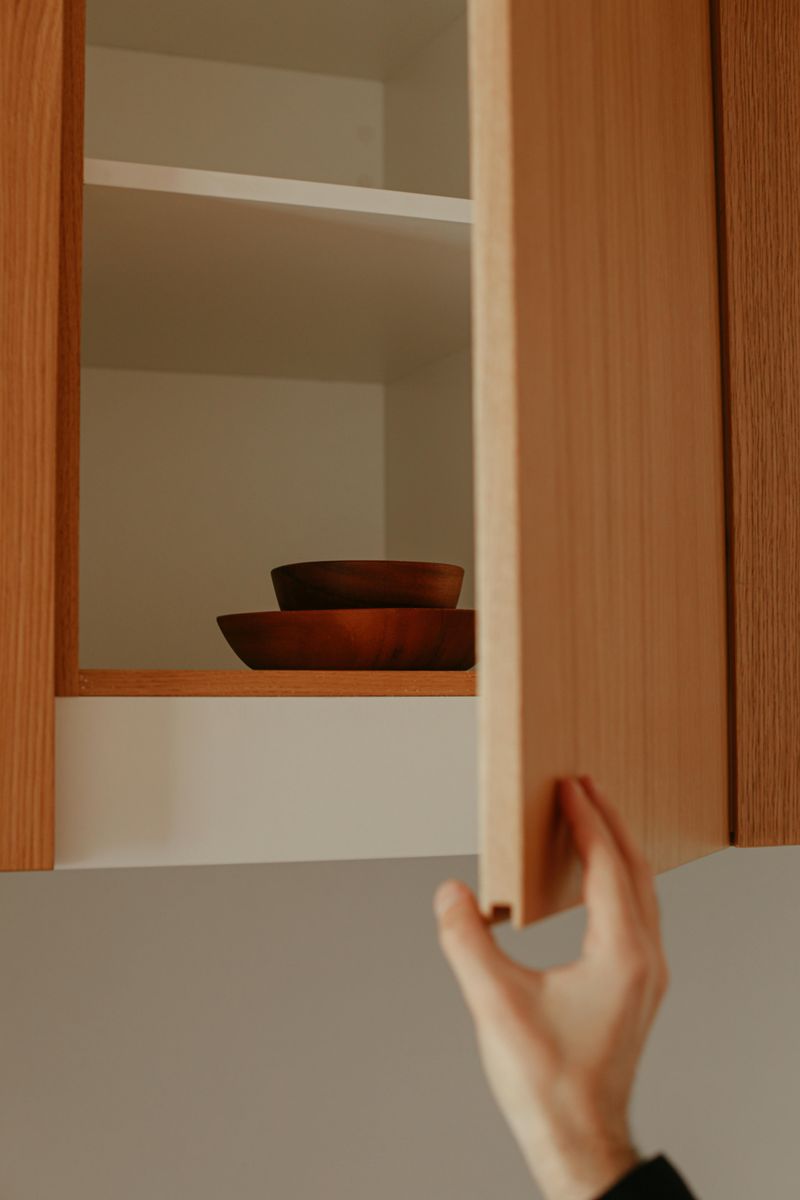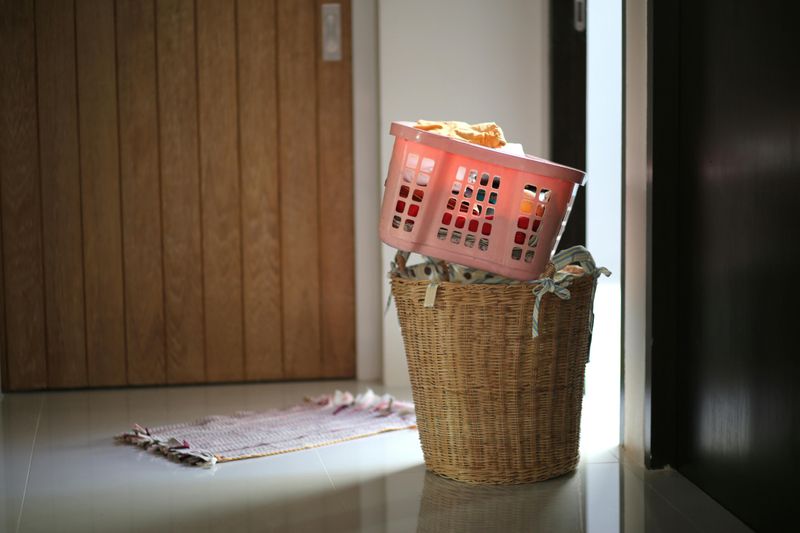15 Pet Peeves So Odd They’ve Ended Real Relationships

They say “it’s the little things” that make love last—but the little things can also make it crash and burn. We expect fights about money, trust, or communication. But what about the way someone chews, texts, or loads the dishwasher? Those seemingly small quirks can pile up like dust bunnies under the couch—quietly collecting resentment until one day, boom, it all explodes.
1. The Way Someone Chews or Swallows

Few things test patience like listening to someone chew with their mouth open. The sound seems to grow louder with every bite, turning dinner into an episode of Misophonia: The Musical. What starts as mild irritation can turn into pure dread at mealtime.
Many people who are sensitive to chewing or swallowing noises aren’t just being picky—it’s often an actual psychological response. These sounds trigger the brain’s fight-or-flight mode, which explains why someone might feel irrationally angry or anxious.
When one partner feels judged for eating “too loud,” resentment can build fast. The solution? Kind honesty and headphones during snack time. Understanding each other’s triggers can help couples keep the peace—and the romance—alive.
2. Leaving Cabinet Doors Slightly Open

You walk into the kitchen and—bam—every cabinet door is half open like a horror movie scene. For some, this is merely untidy; for others, it’s a declaration of chaos. The open-door habit signals carelessness, and it can feel like disrespect toward shared space.
What makes this pet peeve powerful is the symbolism. A partner who constantly leaves things unfinished—like doors, drawers, or toothpaste caps—can unintentionally communicate laziness or disregard. It’s not really about the door; it’s about what it represents.
The fix isn’t complicated, but it does require awareness. Closing the cabinet becomes a small act of love. It says, “I know this bothers you, and I care enough to remember.” Little gestures like that often matter more than big apologies.
3. Texting Habits (Like “K” or No Emojis)

In the age of smartphones, digital communication can make or break a relationship. A one-word “K” can feel colder than an arctic breeze. Meanwhile, someone who uses too many emojis might seem childish or dismissive.
Tone doesn’t translate well over text, which is why so many couples argue about it. One person thinks they’re being efficient; the other thinks they’re being ignored. A missing heart emoji can feel like emotional distance.
Couples who survive texting tension usually learn each other’s “language.” Maybe “K” isn’t cold—it’s just shorthand. Or maybe one partner learns to add a smiley face here and there. When you understand that communication styles differ, the misunderstandings start to melt away.
4. Incorrect Dishwasher Loading

There’s the “logical” way to load the dishwasher—and then there’s your partner’s way. For some people, this tiny domestic detail is a hill worth dying on. A spoon facing the wrong direction becomes a sign of disorder and madness.
At its core, this pet peeve is about control and compatibility. One person sees a system; the other sees a chore. If one partner constantly rearranges the dishes after the other, it sends the message that they can’t do anything right.
The good news? Couples who laugh about it instead of fighting over it usually win. Agreeing to alternate dishwasher duty—or just letting go of perfectionism—can turn a nightly irritation into a shared joke instead of a cold war.
5. Breathing or Snoring Too Loudly

Nothing ruins romance like sleepless nights next to a human foghorn. Loud breathing or snoring doesn’t seem like a relationship killer at first—until one partner starts resenting the other every time their head hits the pillow.
Sleep deprivation has a way of magnifying every annoyance. Suddenly, your once-lovable partner feels like the enemy of rest. Whispered pleas turn into late-night nudges, and before long, separate bedrooms become the only solution.
If this sounds familiar, remember: it’s not about blame. Snoring is often a medical issue, not a personal flaw. A doctor, nasal strips, or even a white-noise machine can save more than your sleep—it can save your sanity.
6. Using Speakerphone in Public (or at Home)

Few things are as grating as being forced to listen to half a conversation on speakerphone. Whether it’s a grocery store or the living room, blasting a call turns private chatter into a public nuisance.
In relationships, this habit can feel like inconsideration. The partner forced to overhear every “mm-hmm” and “what did she say?” might start to feel disrespected—or ignored altogether. It’s not just loud; it’s intrusive.
A little mindfulness goes a long way. Headphones, privacy, and respect for quiet spaces can prevent unnecessary tension. Love doesn’t thrive on noise—it thrives on awareness.
7. Leaving Socks or Clothes in Random Places

A single sock on the floor can represent a mountain of frustration. To the offender, it’s “just one sock.” To the other partner, it’s proof they’re living with a human tornado.
Messiness can be interpreted as emotional neglect. It’s not just about tidiness—it’s about feeling seen and respected. The partner who constantly picks up clothes can start feeling like a parent instead of an equal.
The fix? Divide chores fairly and communicate early. When both people feel their efforts are valued, clutter stops symbolizing carelessness and starts becoming… well, just clutter again.
8. Overusing Pet Names or “Baby Talk”

Endearments like “babe” or “sweetie” are cute—until they’re used every five seconds. What once felt romantic can start feeling performative or even infantilizing.
Some people crave affection in words, while others find constant pet names cringeworthy. The mismatch can lead to awkwardness, embarrassment, or even passive irritation, especially in public.
Balance is the secret. Keep the sweet names for private moments or when they feel genuine. Love doesn’t need baby talk to prove itself—sometimes, authenticity is far more romantic than “snuggle-muffin.”
9. Overcorrecting Grammar or Spelling

No one likes feeling like they’re being graded in a conversation. When one partner constantly corrects the other’s grammar, it can create a teacher-student dynamic instead of an equal partnership.
For grammar enthusiasts, the urge to fix mistakes can feel irresistible. But for the person being corrected, it feels like criticism disguised as “help.” Over time, this dynamic can erode confidence and intimacy.
A better approach? Prioritize connection over correctness. Save the grammar lessons for group chats—your relationship will thank you.
10. Overuse of Social Media (or Sharing Too Much)

Some couples thrive on documenting their love online. Others would rather keep things private. When those two worlds collide, drama is inevitable.
Posting every fight, meal, or milestone can make one partner feel exposed. The other might feel accused of “hiding” the relationship if they don’t post enough. Either way, it becomes a game of validation.
Healthy boundaries are key. Talk about what’s okay to share and what’s not. After all, the best parts of love aren’t always meant for likes.
11. Leaving Wet Towels on the Bed or Floor

A damp towel tossed onto the bed might not sound like a crisis—until it happens for the hundredth time. It’s the kind of small, daily irritation that screams, “You don’t care.”
When these habits go unchecked, they morph into resentment. Suddenly, the towel isn’t just wet—it’s symbolic of one partner’s constant cleanup duty.
Respecting shared space is a quiet way to show love. Taking ten seconds to hang up a towel can be more romantic than flowers. It’s the small efforts that add up to harmony.
12. Talking During Movies or Shows

For movie purists, interruptions are practically blasphemy. Few things kill the vibe faster than mid-scene commentary or a barrage of questions.
This habit often highlights deeper differences in attention or patience. One partner enjoys immersion; the other enjoys engagement. Neither is wrong—but the friction can be real.
Compromise helps. Choose shows that invite conversation, or save the commentary for rewatches. Otherwise, consider separate viewing nights—it might save both your sanity and your Netflix queue.
13. Bad Table Manners (Like Scraping the Plate)

The sound of utensils screeching across a plate can send chills down anyone’s spine. Add in finger-licking or loud slurping, and suddenly dinner feels like a test of endurance.
Etiquette might seem outdated, but in relationships, it’s really about respect. Good manners show effort and awareness of how your actions affect others.
When one partner consistently ignores dining etiquette, it can make the other feel undervalued. A polite meal isn’t just about food—it’s about shared experience and mutual comfort.
14. Using Too Much Perfume or Cologne

A pleasant scent is attractive—until it becomes overpowering. Too much fragrance can trigger headaches, allergies, or simply make someone feel suffocated.
This issue often arises when one partner assumes “more is better.” But what’s seductive to one person might be unbearable to another.
The solution is simple but important: moderation. A subtle scent leaves a stronger impression than a cloud of cologne. Romance should linger, not choke.
15. “Borrowing” Personal Items Without Asking

Sharing is caring—until it involves your favorite sweater or phone charger disappearing mysteriously. Unannounced borrowing blurs the line between intimacy and intrusion.
It might seem trivial, but this habit undermines trust. The message becomes, “What’s yours is mine,” even when it’s not. Over time, it can make one partner feel disrespected.
Healthy boundaries protect relationships, not hurt them. Asking before borrowing shows consideration—and makes sharing a choice, not an expectation.

Comments
Loading…